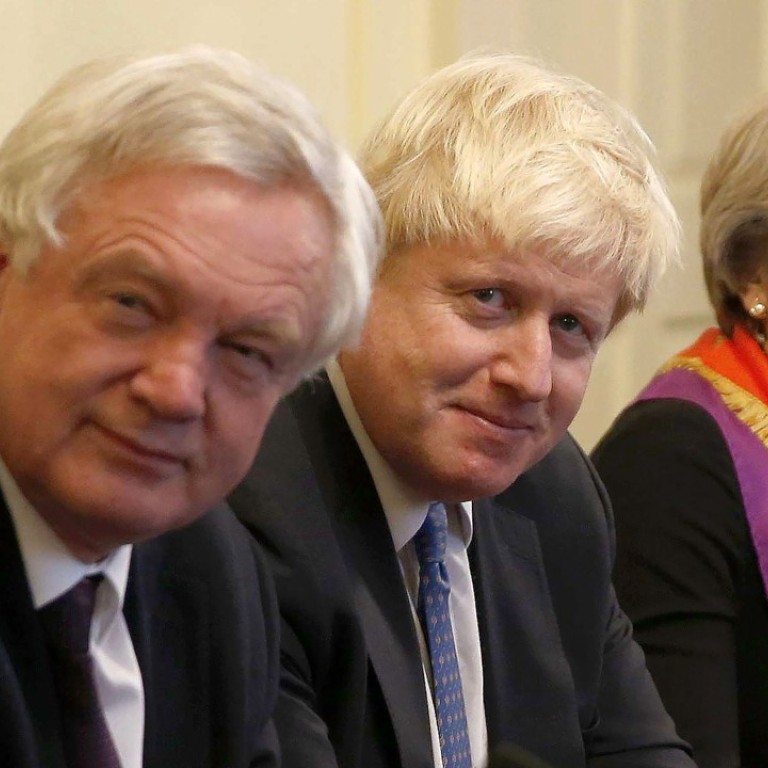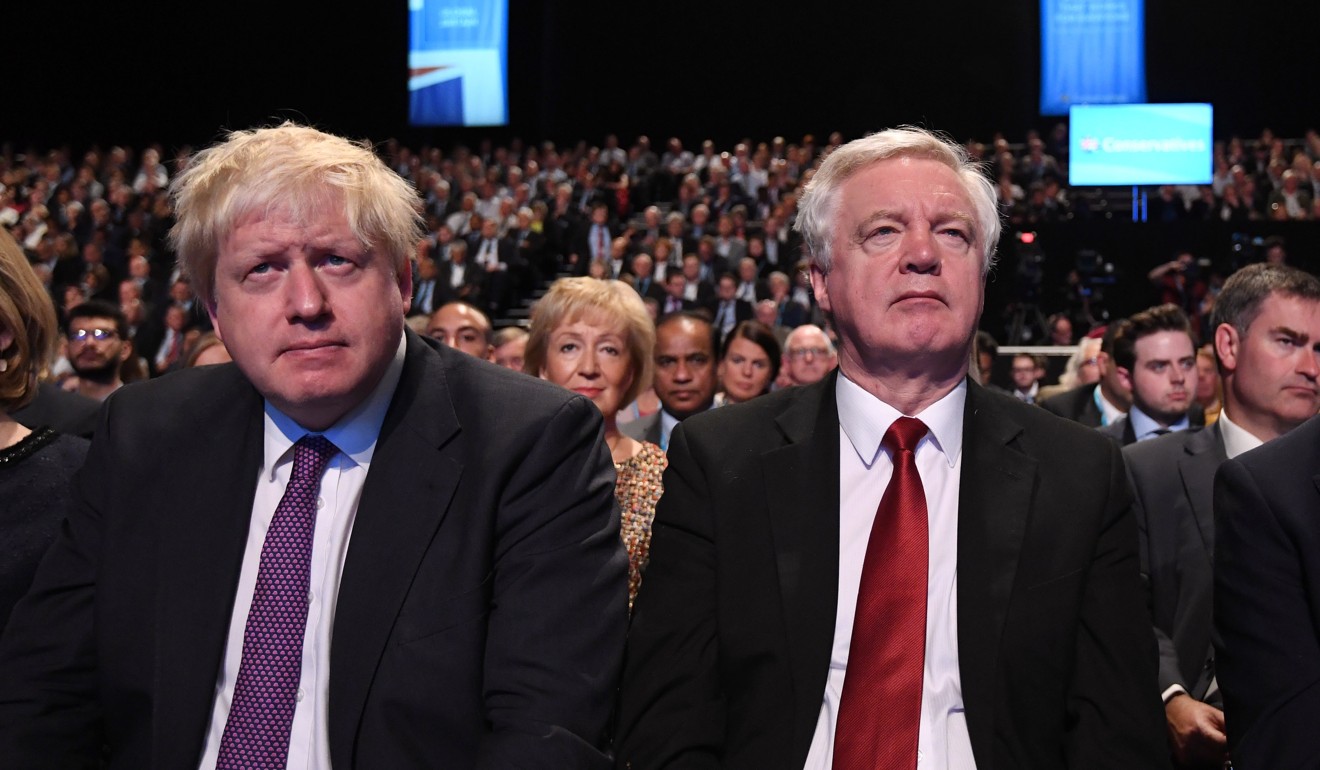
Brexit, stage right: Theresa May faces down UK government rebels, as Boris Johnson delivers ‘colony’ parting shot
PM May warns hardline Brexiters to fall into line or risk handing power to Labour’s Jeremy Corbyn
Theresa May has warned hardline Brexiters to fall into line or risk handing power to Jeremy Corbyn after Boris Johnson became the second cabinet minister to resign in 24 hours, claiming Britain was “headed for the status of colony”.
After a dramatic day of twists and turns in Westminster, the prime minister addressed Conservative MPs for an hour, issuing a stark warning that divided parties lose elections and telling her party that “to lead is to decide”.
She then returned to Downing Street to fill the gaps left on the government benches by several resignations, sparked by the Brexit secretary, David Davis, who stepped down late on Sunday night.

Earlier, Downing Street announced Johnson’s resignation as foreign secretary, just minutes before May addressed MPs about the softer Brexit plan agreed at Chequers on Friday.
The government now has a song to sing. The trouble is that I have practised the words over the weekend and find that they stick in the throat
Johnson had been due to host a summit about the western Balkans on Monday afternoon but was instead holed up in his official residence with close advisers, considering his position.
In a strongly worded resignation letter, he warned that the current Brexit plan meant Britain was “truly headed for the status of colony” and accused the prime minister of “sending our vanguard into battle with the white flags fluttering above them”.
On Monday evening, Johnson was replaced as foreign secretary by Jeremy Hunt, who in turn was replaced as health secretary by Matt Hancock, as the prime minister embarked on a reshuffle to shore up her position.
Both men have proven their loyalty to May in recent months. Hunt recently won a significant increase in resources for the NHS after a stand-off with the chancellor, Philip Hammond, and is widely regarded as a potential future leadership candidate.
As the flamboyant public face of the Vote Leave campaign, Johnson’s departure deepened the sense of crisis in Downing Street, and increased the chances that May could face a vote of no confidence in the coming days.
If 48 Conservative MPs write letters of no confidence to the chair of the backbench 1922 committee, Graham Brady, she would face an immediate vote, but he made clear on Monday night that point had not been reached.
If you are not able to provide the support we need to secure this deal, in the interests of the United Kingdom, it is right that you should step down
Many of the prime minister’s supporters believe she would win a contest and cement her authority; but May would face a leadership challenge if she lost, with Johnson among the potential candidates.
Asked whether May would contest a no-confidence vote, a Downing Street source said simply: “Yes.”
Asked whether May was confident that the rest of her cabinet backed the negotiating position agreed at Chequers, which is due to be fleshed out in a white paper later this week, he added: “There is no reason to think otherwise.”
The carefully choreographed meeting last week resulted in a deal May believed her cabinet had signed up to, which would create a “UK-EU free trade area” for goods, governed by a “common rule book”.
But Davis’s resignation, followed by his number two at the Department for Exiting the EU, Steve Baker, shattered that truce and put pressure on Johnson to follow suit.
In his resignation letter, Johnson said: “On Friday, I acknowledged that my side of the argument were too few to prevail, and congratulated you on at least reaching a cabinet decision on the way forward. As I said then, the government now has a song to sing. The trouble is that I have practised the words over the weekend and find that they stick in the throat.”
In her equally pointed reply, the prime minister said: “If you are not able to provide the support we need to secure this deal, in the interests of the United Kingdom, it is right that you should step down.” She added that she was “sorry, and a little surprised” at his resignation after the discussions in Chequers.
Davis was replaced as Brexit secretary by fellow leaver Dominic Raab. Baker was replaced by Chris Heaton-Harris, another Brexiter, who sparked controversy last year after asking universities to supply details of their teaching on the EU.
Brussels has not yet made clear how the EU27 will respond to the Chequers deal, which the government believes represents an “evolution” of its negotiating strategy.
A senior Brussels source insisted they were unruffled by Davis’s resignation, dismissing it as “UK politics”. “Let’s see how it goes. We negotiate with the negotiators,” he said.

